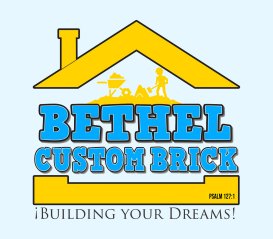Your chimney plays a vital role in ensuring the safety and efficiency of your fireplace or heating system. However, over time, it can develop issues such as cracks, creosote buildup, or structural damage that compromise its performance and safety. Regular chimney inspections are essential for identifying these problems early and maintaining a safe, functional, and efficient chimney. Here’s why chimney inspections are critical and what you can expect from the process.
Why Are Chimney Inspections Important?
- 1. Prevent Chimney Fires: Creosote, a highly flammable byproduct of wood combustion, can accumulate inside the flue. Regular inspections help identify and remove this buildup, significantly reducing the risk of chimney fires.
- 2. Detect Structural Issues Early: Over time, bricks, mortar, and chimney liners can deteriorate due to weather exposure and regular use. Inspections can catch cracks, spalling bricks, and other structural problems before they escalate.
- 3. Ensure Proper Ventilation: A clogged or damaged chimney can hinder airflow, causing smoke and dangerous gases like carbon monoxide to back up into your home. Inspections ensure the flue is clear and functioning correctly.
- 4. Prolong Chimney Lifespan: Identifying and addressing minor issues early prevents costly repairs or replacements, extending the life of your chimney.
- 5. Meet Safety Standards: Annual inspections are recommended by the National Fire Protection Association (NFPA) and are often required to comply with building codes or insurance policies.
What Does a Chimney Inspection Involve?
Chimney inspections are typically categorized into three levels, depending on the condition of your chimney and its usage:
1. Level 1 Inspection:
- When It's Needed: If your chimney has been regularly maintained and shows no signs of damage.
- What It Includes: A visual examination of the readily accessible areas, such as the firebox, flue, and exterior masonry, to check for blockages, creosote buildup, or visible damage.
2. Level 2 Inspection:
- When It's Needed: If you’ve made changes to your chimney, such as a new liner, or if your property has experienced damage from severe weather, fire, or earthquakes.
- What It Includes: A more thorough examination using tools such as video scanning to inspect internal areas of the chimney, including flue liners and joints.
3. Level 3 Inspection:
- When It's Needed: If severe damage is suspected and access to concealed areas is required.
- What It Includes: Removal of components such as chimney walls or masonry to assess hidden issues, typically following Level 2 findings.
How Often Should You Schedule a Chimney Inspection?
- Annual Inspections: The NFPA recommends scheduling a chimney inspection at least once a year, regardless of how often you use your fireplace.
- After Severe Weather Events: Heavy storms, high winds, or freezing conditions can damage your chimney, necessitating an inspection.
- Before and After the Heating Season: Inspections before winter ensure your chimney is ready for use, while post-season checks identify and address any damage from regular use.
Common Issues Detected During Inspections
Regular chimney inspections can uncover a range of issues that may otherwise go unnoticed:
- 1. Creosote Buildup: Excessive creosote can block the flue and create fire hazards.
- 2. Cracked or Damaged Chimney Liner: A compromised liner can allow heat and gases to escape, endangering your home.
- 3. Blocked Flue: Leaves, debris, or animal nests can obstruct airflow and pose safety risks.
- 4. Damaged Mortar or Bricks: Erosion or cracks in the masonry weaken the structure and allow water infiltration.
- 5. Water Damage: Moisture inside the chimney can cause rust, spalling bricks, and mold growth.
Benefits of Regular Chimney Inspections
- 1. Peace of Mind: Knowing your chimney is in good condition allows you to enjoy your fireplace safely and comfortably.
- 2. Cost Savings: Identifying and addressing minor issues early prevents costly repairs and extends the chimney’s lifespan.
- 3. Improved Efficiency: A clean and well-maintained chimney ensures better airflow and optimal performance from your fireplace or stove.
- 4. Enhanced Home Safety: Inspections reduce the risk of chimney fires, carbon monoxide poisoning, and structural damage, keeping your family safe.
Tips for Maintaining a Safe Chimney
To complement regular inspections, follow these maintenance tips:
- Clean Your Chimney Annually: Schedule a professional cleaning to remove creosote and debris.
- Burn Seasoned Wood Only: Avoid burning green or wet wood, which produces excess smoke and creosote.
- Install a Chimney Cap: Protect your chimney from debris, animals, and moisture.
- Check for Damage After Storms: Inspect your chimney after severe weather for signs of damage.
Bethel Custom Brick – Your Trusted Chimney Inspection Experts in the Detroit Metro Area
At Bethel Custom Brick, we specialize in comprehensive chimney inspections and maintenance to ensure your chimney remains safe and efficient year-round. Serving the Detroit Metro area, our experienced team provides expert assessments and solutions tailored to your chimney’s unique needs. Contact us today to schedule an inspection and protect your home with our trusted masonry services.


